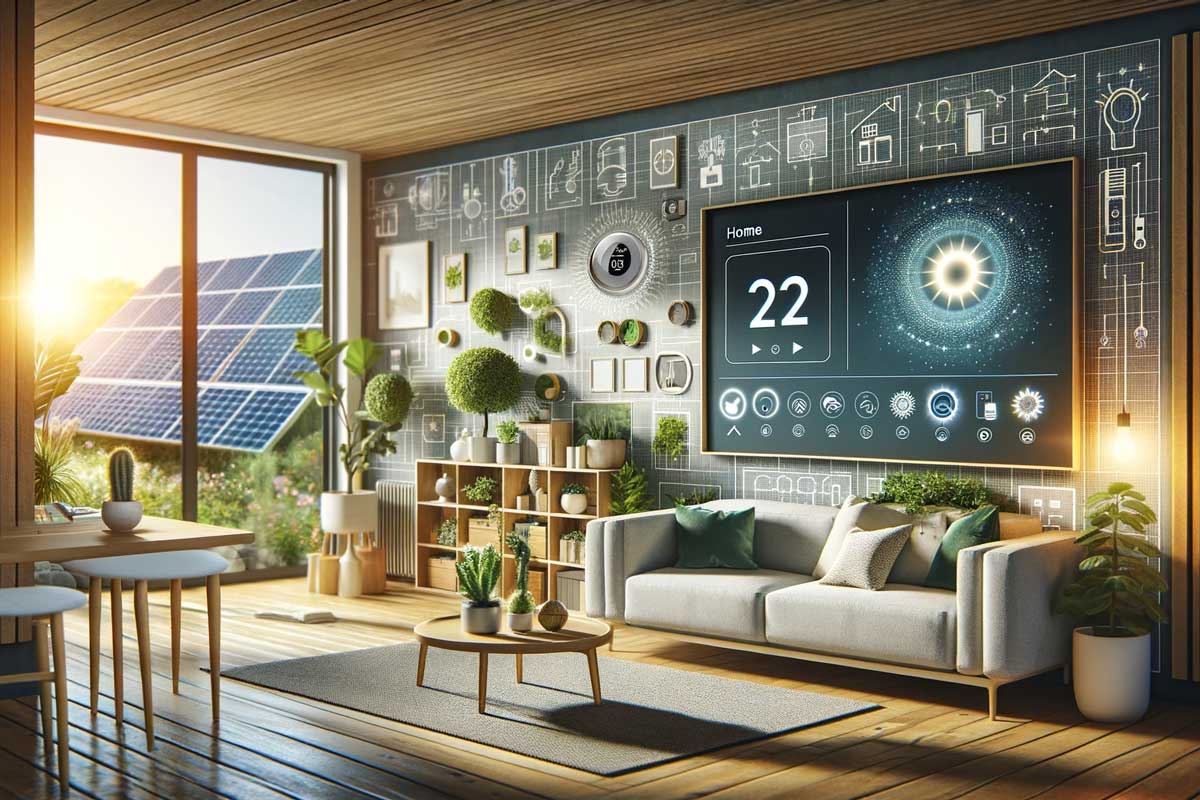
How Sustainable Are Smart Homes? The Future of Eco-Friendly Living
Share
In our rapidly evolving technological landscape, the question of how sustainable are smart homes becomes increasingly relevant. As technology enthusiasts and professionals, we are always looking for ways to integrate innovation with sustainability. The concept of a smart home, equipped with interconnected devices that optimize energy consumption and enhance lifestyle convenience, seems like a promising solution. But how sustainable are these homes in practice?
The Rise of Smart Homes
Smart homes have been on the rise, thanks to advancements in the Internet of Things (IoT) and home automation technologies. With a network of interconnected devices, smart homes offer unprecedented control over household functions, from lighting and temperature to security and entertainment. This growing popularity is evident in several energy-efficient lighting solutions and automated systems that promise to reduce our carbon footprint.
Energy Efficiency and Environmental Impact
The core promise of smart homes lies in their potential to enhance energy efficiency. By using smart thermostats, automated lighting systems, and energy monitoring devices, homeowners can significantly reduce energy waste. For example, a study on automation highlights how such systems can lower energy consumption by optimizing usage patterns.
Moreover, smart homes can integrate renewable energy sources, such as solar panels, more seamlessly into the home energy grid. This integration not only reduces reliance on non-renewable resources but also promotes a more sustainable lifestyle. For more insights on the integration of green technology in homes, check out Green City Times.
Resource Management: Water and Waste
In addition to energy, smart homes can also revolutionize how we manage other resources, such as water. Smart irrigation systems and leak detectors are becoming more common, ensuring water is used efficiently and leaks are detected early. A commercial water leak detector can not only prevent water waste but also minimize the risk of water damage, which can be costly and environmentally detrimental.
Similarly, smart waste management solutions can help households reduce waste production and improve recycling efforts. By using smart bins equipped with sensors, households can ensure waste is sorted correctly and recycled efficiently.
Challenges and Considerations
Despite their potential, smart homes are not without challenges. The initial cost of implementing smart technologies can be high, and there is a learning curve associated with using these systems effectively. Additionally, concerns about data privacy and security can deter some homeowners from adopting smart home technologies.
Furthermore, the sustainability of smart homes can be compromised if the devices themselves are not designed with eco-friendliness in mind. The production and disposal of electronic devices can contribute to e-waste, making it important for manufacturers to prioritize sustainable practices in their design and production processes.
The Future of Smart Homes
Looking ahead, the future of smart homes is promising. As technology continues to advance, we can expect even more innovative solutions that enhance sustainability. From eco-friendly home automation products to advanced energy management systems, the possibilities are endless. To explore some of these exciting innovations, visit Elemental Green.
Moreover, as consumer demand for sustainable solutions grows, companies are likely to invest more in developing eco-friendly smart home technologies. This trend not only benefits the environment but also offers tech professionals and enthusiasts exciting opportunities for innovation and development.
Conclusion
In conclusion, the sustainability of smart homes is a multifaceted issue that involves energy efficiency, resource management, and the responsible use of technology. While challenges exist, the potential benefits of smart homes in promoting a sustainable lifestyle are undeniable. By embracing these technologies and addressing their limitations, we can pave the way for a more sustainable future.

FAQ
Q1: Are smart homes expensive to set up?
A1: The initial cost can be high, depending on the technologies implemented, but they can lead to long-term savings through energy efficiency.
Q2: Can smart homes help in water conservation?
A2: Yes, with smart irrigation systems and leak detectors, smart homes can significantly reduce water waste.
Q3: What are the privacy concerns with smart homes?
A3: Data privacy and security are major concerns, as smart devices collect and transmit data that could be vulnerable to breaches if not properly secured.
